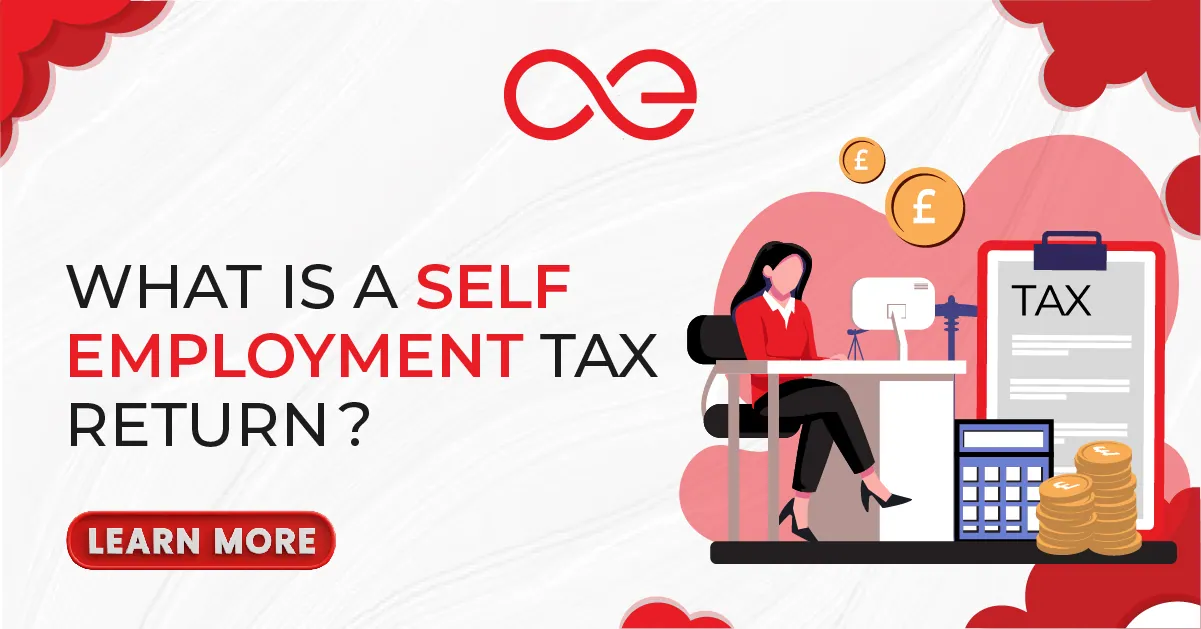When you’re self-employed, it’s your responsibility to manage all aspects of your taxes, including keeping records, filing tax returns, and paying any amounts due. One key part of this is submitting a self-assessment tax return each year to report your income.
People sometimes refer to this as a “self-employment tax return,” but that’s not quite right. While the two terms are often used interchangeably, there isn’t really a “self-employment tax return.” It’s the self-assessment tax return that you need to use when reporting income to HMRC, whether from self-employment or any other untaxed sources.
Now that we’ve cleared that up, let’s dive a bit deeper into what a self-assessment tax return involves.
What is a Self-Assessment Tax Return?
Self-assessment tax returns are an important part of the UK tax system. Each year, if you’re required to file one, you’ll report your earnings to HMRC. This includes any income from self-employment, making sure all your taxable income is included, along with any reliefs or deductions you’re entitled to claim. Based on this, HMRC calculates how much tax you owe and sends you a bill.
Most people file their self-assessment online, which has a lot of advantages, but there’s also the option to do it on paper. It’s really important to file correctly and on time, as HMRC can issue hefty penalties for errors, inaccuracies, or late submissions. Even being one day late triggers an automatic £100 fine.
If you need to register for self-assessment, the deadline is October 5th after the tax year you’re reporting for. The deadline to file is October 31st if you’re using a paper form, and January 31st for online returns. You also need to pay your tax bill by January 31st.

Who Needs to File a Self-Assessment Tax Return?
More than 12 million people in the UK are required to complete a self-assessment tax return each year, so it’s important to know if you’re one of them to stay on top of your tax obligations.
You’ll generally need to file a self-assessment if any of the following apply to you:
- You’re self-employed and earn more than £1,000.
- You claim child benefit, and you or your partner earn over £60,000.
- You’re a partner in a business partnership.
- You earn taxable income from investments or savings above the £1,000 personal savings allowance.
- Your total taxable income exceeds £150,000.
- You receive over £10,000 in rental income or dividends.
- You made a capital gain above the tax-free capital gains allowance.
If you’re not sure whether you need to file, HMRC offers an online tool to help you check.

Tips For Successfully Completing Your Self-Assessment Tax Return
Completing your self-assessment accurately and filing it on time can be challenging so here are some tips to make the process less onerous.

Keep Meticulous and Organised Records
Maintaining detailed and organized records of your business income and expenses is essential for accurately completing your self-assessment tax return. Staying on top of your bookkeeping and doing regular reconciliations can save you a lot of stress, as opposed to scrambling to get everything in order just before the filing deadline.
In addition to maintaining good records, it’s important not to leave your self-assessment tax return to the last minute. Starting early gives you time to gather all the necessary documents and complete each section properly. Waiting until the deadline approaches increases the risk of errors, omissions, or even missing the deadline altogether, which could lead to fines and penalties from HMRC.
Stay Updated on Tax Legislation
Tax rules change frequently, including updates on deductions, reliefs, and rates. Keeping yourself informed about any legislative changes that may impact you ensures you remain compliant and don’t miss out on potential reliefs, which could result in you paying more tax than necessary.
How an Accountant Can Help with Your Self-Assessment
One of the easiest ways to make self-assessment stress-free and avoid errors or penalties is by working with an accountant. At Account-Ease, we specialize in self-assessment tax returns. As one of the UK’s most trusted accountancy firms, you can count on us to help you meet your tax obligations.
If you’re a Account-Ease client, your annual self-assessment tax return is included in our accountancy packages. You’ll have a dedicated accountant managing both your personal and business finances, offering unlimited support and advice with a same-day response guarantee. We also conduct quarterly reviews to ensure you’re maximizing tax efficiency and increasing your take-home pay.
For advice on your self-assessment or to learn more about our accounting services, call us at 0208 133 4599 or request a callback at your convenience.

